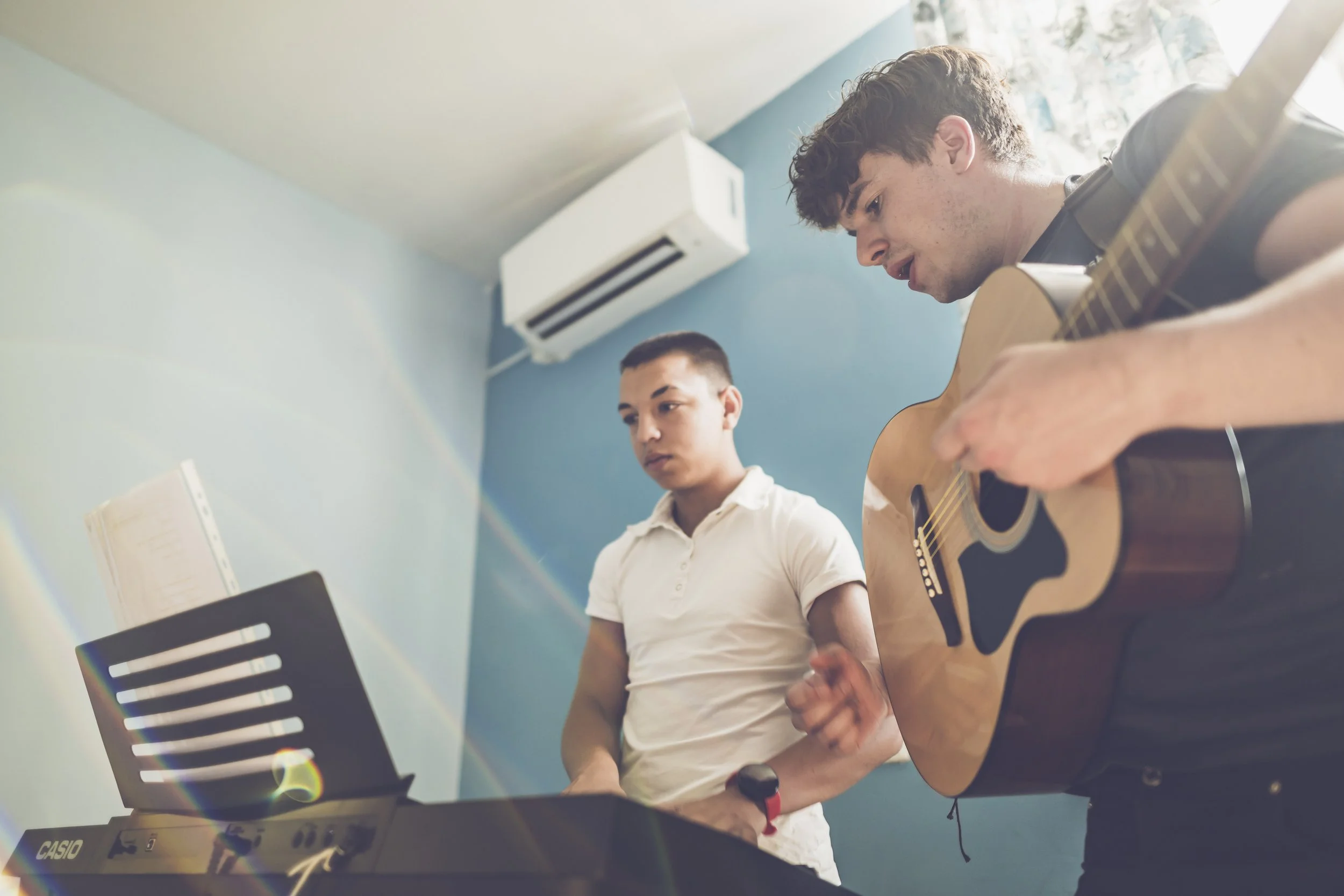
Presence and Partnership
One Collective Catalysts in Santiago is fostering deep, trust-based relationships with youth in group homes, demonstrating their values of long-term presence and community-led transformation.

Kept: Lessons From 40 Years of International Service
What happens when you spend more than 40 years following God into unfamiliar places? For Paul and Elizabeth Musser, a lifetime of service with One Collective has been less about places they’ve been or accomplishments they’ve made, and more about discovering who God is and learning to live out of that reality.

Nations Worship in Bulgaria
At One Collective, we often say that when people work together and follow in the ways of Jesus, the result is real, lasting change. In a small town in Central Bulgaria called Tulovo, we’ve seen this model exemplified in a blossoming music ministry that has brought different nations and cultures together to worship God in unity.

God Seeks Volunteers
“I don’t think I’m called to go overseas.” It’s a phrase we hear often—and one that can quietly keep us on the sidelines of God’s mission. But is a supernatural calling always required? In this article, we explore the case of the prophet Isaiah to demonstrate how availability often comes before assignment.

What to Prioritize When Exploring Serving Overseas
There are many factors that can be taken into account while considering serving overseas, but only one ultimate priority. Will the specific opportunity before you allow you to draw near to God?

How a Week in Nicaragua Changed How I Live
When obedience meets opportunity, faith becomes personal. Lauren’s unexpected ‘yes’ to a mission trip in Nicaragua sparked a deeper connection with God—and a renewed calling to live with purpose.

What Makes an Organization Financially Trustworthy?
Thoughts on evaluating financial integrity from Mark Erkenswick — Partner-in-Charge of Audit at KPMG

Opportunity for Change is Ripe in Papagayo
What happens when a community is ready for transformation—and just needs the right person to help bring it to life? In the hills of Nicaragua, Papagayo Farm is more than fields and buildings. It’s a place where people come together, where agriculture creates opportunity, and where lasting change is within reach. Now, with a new season ahead, Papagayo is looking for someone to help lead what’s next.

Transforming a Kenyan Community Through Faith and Holistic Impact
One of our newest communities in Kenya is a great practical example of how One Collective’s model of Integrated Community Transformation (ICT) takes shape in everyday work. There are four steps to the ICT process: Enter, Evaluate, Engage, and Expand, and one person in the center of them all: Jesus. Continue reading to see how ICT has impacted one Kenyan community over the past few years.

What Does it Take for Transformation to Spread from One Community to Another?
How sustainable change in Masatepe is laying the groundwork for a new chapter of transformation in Ticuantepe—and the opportunity to be part of what God is already doing.

Breaking Barriers: Creating Inclusive Workplaces for Neurodivergent Workers in Vietnam
In Vietnam, many neurodivergent individuals struggle to find work and community. One couple set out to change that—building inclusive workplaces, launching a coffee shop, and reshaping perceptions of disability. Their story proves that when given a chance, people thrive.

Dove Power, Serpent Power
Rev. Dr. Alexia Salvatierra has helped churches move from compassion to action for nearly 50 years. Her story challenges us to ask: What if justice isn’t just a cause—but a calling for the whole church?

Discipleship as Part of a Holistic Cross-Cultural Ministry - Part 1
When Jesus made disciples, He didn’t just teach them—He invited them into a way of life. Join us as we explore 6 parts of an effective cross-cultural discipleship strategy.

Discipleship as Part of a Holistic Cross-Cultural Ministry - Part 2
When Jesus made disciples, He didn’t just teach them—He invited them into a way of life. Join us as we explore 6 parts of an effective cross-cultural discipleship strategy.

The Difference Long-Term Partnership Makes
Around the world, long-term partnerships play a vital role in creating change that lasts - but the path to establishing these partnerships can be challenging. How can a church, business, or university come alongside a specific community well?

Maximizing Impact with Strategic Giving
Thoughts on giving from Jeff Wallace — President of the National Christian Foundation in Chicago

How a Summer in Spain Changed Grace's Perspective on Her Future
As a college student, it’s easy to wonder: “Do I really have the skills or experience to make a difference in the world?” Grace, a psychology and counseling major, felt that way too—until a summer internship in Spain with One Collective showed her just how impactful her contributions could be.

Discovering Ongoing Ministry Through the Camino
Can mission work transform your life? Jesse Watson’s journey with One Collective shows how serving others sparks lasting growth and impact. Discover how your gifts can make a difference.

How Fundraising Is A Conduit For Blessing
Support raising! Sound fun? Probably not. Most of us see support raising as a necessary task we have to perform to get on with the real work of ministry. We don’t think it has any of its own inherent value. But is that true? This article is written for future goers who might be worried about the prospect of support raising or questioning whether or not this is something that God would have them do. Fundraising is a conduit for blessing both for others and for yourself!

A Welcoming Community for Emancipated Foster Youth
Engaging a community with complex needs can feel overwhelming, especially when the systems designed to help fall short. DSF Werks, a non-profit organization working with foster youth, employs a people-focused approach that provides an excellent example of how to love one’s community and create practical solutions that build hope, community, and lasting change.
